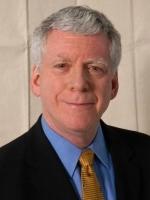Not Treating Requisite Organization as a Cult
Using the science that underlies RO's methods and templates.
Speaker A In the last five years or so, and this may simply be in my own practice, but increasingly I hear concerns of, about and references to requisite organization as a cult. And even, I mean, with...
Transcript of the presentation video
NOTE: This transcript of the video was created by AI to enable Google's crawlers to search the video content. It may be expected to be only 96% accurate.
Speaker A In the last five years or so, and this may simply be in my own practice, but increasingly I hear concerns of, about and references to requisite organization as a cult. And even, I mean, within six months of each other, two of my clients I heard referring to people as the question being whether they had drunk the kool aid, whether they had, in reference to the jonestown cult, where people drank at the end, prove their loyalty by drinking cyanide lace koolaid. A cult is a belief system that cannot be questioned. So and I think this is something to be avoided both within our field and certainly within an organization. And I find it interesting. Organizations that call this implementing requisite organization simply because that's the name of the book they took it from. Those who say it doesn't matter where the ideas came from. We're going to call it the Acme Management system. And others who very deliberately and pointedly say, no, this is a methodology we're using and we need to be upfront about it. And so we are making use of requisite organization. As soon as you have any identifier about the system you're using, you're in danger of it's becoming rigid, and you're in danger of it's operating in a cult like status within the organization. So the implication for me in this is that managers need some understanding not only of the engineering templates, but also the science underneath it. So that if you, my manager, are talking with me, also a manager, about my team and about the structure and perhaps about gaps within it, we're not simply using the rules from the engineering templates. We're not simply saying, oh, you can't have a four managing a four, or you can't have a four managing a two. Of course you can. The question always is, what are the costs going to be? What are the benefits? And for managers to be trained not just in principles of structure, but also what underlies them would allow them then to have a much more meaningful dialogue about, all right, the starting point is going to be a one stratum gap between manager and subordinate. That's the template. But now let's take a look at that intelligently, and let's take a look at whether we can do that. Do we have the people who can do that? What's the cost going to be? And to the extent that managers understand the scientific underpinning of the engineering template, they can have an intelligent and a useful conversation about it, come to a result that will be, again, effective, efficient and trustworthy, and one that will go down a lot easier. Because it's not going to be again. It's not going to appear like it's coming out of a cult.
Major organizations and consulting firms that provide Requisite Organization-based services





